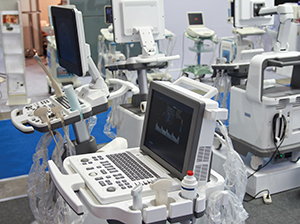Delivering an electronic health record
Writing for eolas, the Health Service Executive’s Chief Information Officer Richard Corbridge explains eHealth Ireland’s approach to delivering an electronic health record nationwide.

The largest programme of work within the eHealth Ireland portfolio is the delivery of an Electronic Health Record (EHR) to the whole health system throughout Ireland. A huge and ambitious undertaking made in the 2014 eHealth Ireland strategy and followed up in more detail in last years knowledge and information plan.
The business case for the EHR has now been drafted and is heading to the governance process for review and ultimately approval. The team within eHealth Ireland has been working on the business case since the approval of the Case for Change in the late summer of last year. The business case describes what an EHR in Ireland will look like for the public, clinicians and health system more generally and sets a timeline for a point in the future when information about health episodes throughout the system are digital and, with appropriate care, can be shared from care setting to care setting. One of the key principles of eHealth Ireland’s EHR is to put the patient in control of their information. This means not only allowing clinicians to access shared information but allowing the patient to make use of the information to stay well and healthy.
The eHealth Ireland team have created a business case with four pillars to it; the ability to integrate clinically specific systems, the ability for a clinician to have a view of disparate systems where they have a legitimate relationship to do so, the ultimate EHR functionality in the first instance to be deployed in the National Childrens Hospital (NCH) and services to support the implementation.
The eHealth Ireland timeline for these pillars has been created in conjunction with the health system ensuring that there is a clear understanding of the resource need for this implementation to be successful. The first full EHR implementation will be the NCH, however the team have a plan that will see integration between systems and the implementation of portal technology as early as the middle of 2017. Whilst ambitious, these kinds of targets are symptomatic of the turning tide seen in health care IT in Ireland since the publication of the eHealth Ireland strategy.
The cost of technology in health is always a key area to consider, technology is still not seen as a utility to deliver care and is considered ‘nice to have.’ Even the first digital hospital in Ireland has a separate business case for its technology, it is not ‘baked in’ to the whole hospital business case. Capital costs for an EHR for Ireland spread over the period 2016 to 2022 are estimated at €467 million. The revenue costs over a longer period, up to 2026, are estimated at €408 million. These costs are described in detail in the business case which will be provided to the pubic via the eHealth Ireland web site shortly. When we consider though the recent launch of an EHR for just one large hospital in the NHS has a cost set at around £60 million then we can start to see the value in taking a country wide approach.
“One of the key principles of eHealth Ireland’s EHR is to put the patient in control of their information”
 In addition the business case has been created in such a way to provide commercial protection to the Irish healthcare system. EHR solutions can be called down on a geography by geography basis meaning that Ireland will only pay for systems once implemented and they will only be implemented when the health system is ready to do so. This is a lesson we have learnt from a number of jurisdictions throughout the globe that have tried to implement their own electronic health record.
In addition the business case has been created in such a way to provide commercial protection to the Irish healthcare system. EHR solutions can be called down on a geography by geography basis meaning that Ireland will only pay for systems once implemented and they will only be implemented when the health system is ready to do so. This is a lesson we have learnt from a number of jurisdictions throughout the globe that have tried to implement their own electronic health record.
A key additional feature of the eHealth Ireland approach to the delivery of the EHR is the focus on clinical engagement. The team put in place what has become known as the Clinical Information Officers Council in the spring of last year. This group, unlike other countries that have implemented an EHR, is in place before the delivery begins. Uniquely, this means the council, which is now 150 strong, can influence the entire direction of the EHR development and delivery ensuring that the success criteria for implementation comes from health delivery and not technology delivery.
An EHR in every care setting in Ireland is still some way in the future, but the business case being delivered and the direction it sets out shows a possibility that will truly change the way in which health care can be delivered in this country.





